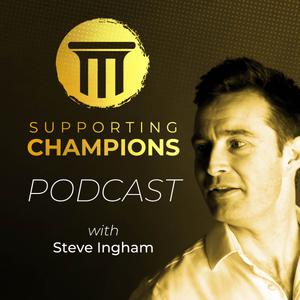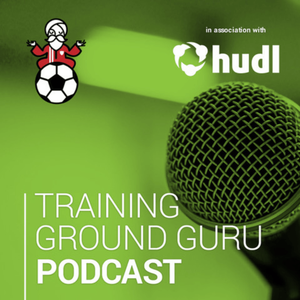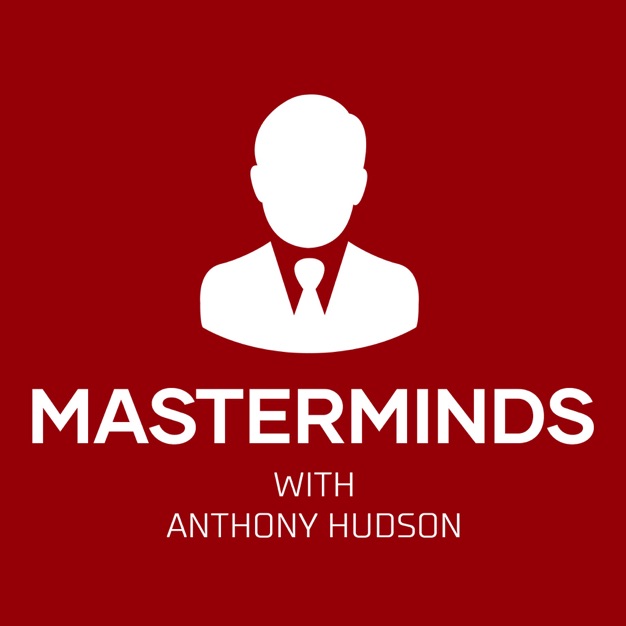
Leaders Performance Podcast
The Leaders Performance Institute
Leaders Performance Podcast hosted by The Leaders Performance Institute
- 31 minutes 41 secondsLachlan Penfold, Melbourne Storm
Lachlan Penfold’s time at the Golden State Warriors was eye-opening in numerous ways.
Chief amongst them was his realisation that joy is crucial in a high performance environment.
“Joy in a professional sport? That’s a bit strange,” thought Penfold, but it was one of the team’s trademarks and no-one embodied it better than their Head Coach Steve Kerr and illustrious point guard Steph Curry.
“The player that embodies it better than anyone in world sport is Steph Curry in terms of just the absolute joy he gets from playing the game, from training the game,” Penfold continues, “not only from his perspective, but from seeing his teammates have success and do great things, the joy that he gets really invigorates a sporting team.”
It has fed into his work with the Melbourne Storm, who reached the NRL grand final in October. No doubt they’ll go again in 2025, inspired by the family environment described so vividly by Penfold [10:00].
We also spoke about his approach to training and recovery [17:30] and the importance of individualised work [22:30]. Last up, we discussed the year ahead [28:10].
Listen above and subscribe today on iTunes, Spotify, Stitcher and Overcast, or your chosen podcast platform.
19 December 2024, 6:00 am - 36 minutes 14 secondsFlo Laing, Scotland Rugby
Flo Laing does not miss a beat in explaining what she’s most excited about heading into 2025.
“It’s got to be the World Cup,” says Scotland women’s Lead Physiotherapist.
The competition will be hosted across the border in England and starts in August. Laing says it has been the Scotland team’s “north star” for several years.
During the course of our conversation – the second of three in this Keiser podcast series – we spoke about her work in women’s rugby at a time where the sport is starting to capture the public’s imagination and performance standards are rising faster than ever for the women players who compete [4:00].
Elsewhere, Laing discusses her leadership style, which is very much about putting people at ease [18:00]; she also talks about the most pressing issues in female athlete health [28:40]; as well as the transferable skills she’s learned from her time working for Sport Scotland [12:30].
Listen above and subscribe today on iTunes, Spotify, Stitcher and Overcast, or your chosen podcast platform.
18 December 2024, 6:00 am - 40 minutes 35 secondsDuncan French, UFC
Duncan French, the Senior Vice President of the UFC Performance Institute, is describing the aftermath of a bout.
“If an athlete has gone through the fight pretty well and won, then it might be a very simple kind of cool down in one of the back rooms in the locker room and just do some light work to bring themselves back down again,” he says of the victor.
“If an athlete’s had a pretty significant amount of trouble, that’s a very different strategy.”
Mixed martial arts is, as he adds, “a sport of consequences”.
It’s all in a day’s work for French, who oversees the UFC’s Performance Institutes based in Las Vegas, Shanghai and, most recently, Mexico City.
There have been some teething troubles with the Mexican facility [4:40], but French took it all in his stride, as he tells us in the first of this three-part Keiser Series Podcast focused on some of the challenges faced and lessons learned by members of the Leaders Performance Institute during 2024.
French also discussed his evolving leadership style [6:20]; the personalisation of fight preparation plans [19:30]; and his use of data to inform those strategies [28:30].
Listen above and subscribe today on iTunes, Spotify, Stitcher and Overcast, or your chosen podcast platform.
17 December 2024, 6:00 am - 57 minutes 42 secondsDan Jackson, Adelaide Crows
Dan Jackson is the General Manager of Player Development & Leadership at the Adelaide Football Club, but he is quick to dispel any notions that he is a guru.
“I can’t teach leadership,” he tells the Leaders Performance Podcast. “I can help unlock what’s already in there.”
On that note, he is certain that leaders are not born. “Leadership is 100 per cent made, but it’s made from a very young age.”
Beyond the origins of leadership, Dan spoke to Henry Breckenridge and John Portch about the importance of prioritising others [10:40]. “Great sustainable teams are built in environments where everyone’s looking to help someone else out,” he adds. “When you fill someone else's bucket, it fills yours.”
Also on the agenda were the importance of humour and enjoyment [22:00]; the argument against ‘refreezing’ culture [48:30]; and the practical steps that help leaders to manage team operations [32:00].
Henry Breckenridge LinkedIn
John Portch LinkedIn
Listen above and subscribe today on iTunes, Spotify, Stitcher and Overcast, or your chosen podcast platform.
15 December 2024, 6:00 am - 58 minutes 3 secondsDr Karl-Heinrich Dittmar, Yael Averbuch West and Stephen Smith
Kitman Labs ensured Bayer Leverkusen knew what it took to win the German Bundesliga.
They demonstrated to Dr Karl-Heinrich Dittmar, Leverkusen’s Head of Medical, the optimal range of player availability to top the table during a meet in Dublin, four or five years before Die Werkself actually won the title.
“I kept this data; and last year we did it,” Dr Dittmar told the Kitman Labs podcast with evident pride. It turns out the data scanned almost perfectly across the numbers posted by the club during their unbeaten title-winning campaign.
“They found out what we need from the medical point of view, from player availability, and it was perfect – the data predicted what would happen in the future.”
It demonstrated the value of clean, consistent datasets – something that has given Leverkusen an edge over more celebrated rivals – and something that Yael Averbuch West is trying to build in her role as GM at 2023 NWSL champions Gotham City.
“We’re still in the data collection stage in the women’s game,” she tells the podcast, while also explaining that the work to bridge that gap is well underway in this corner of New York City.
In the third and final episode of this series, West and Dr Dittmar are joined by Kitman Labs Founder Stephen Smith to discuss how data strategies can help teams in their quest for greatness.
Elsewhere, the trio discuss a range of topics, including why learnings tend to emerge as data collection grows ever more sophisticated [17:30]; the importance of a centralised system for consistency [24:15]; the balance between using data to unearth ‘hidden gems’ and jumping on something misleading [33:00].
Episode one is available here and episode two is available here.
12 December 2024, 6:00 am - 45 minutes 2 secondsArianna Criscione, Sarah Smith & Stephen Smith
You may have a great performance structure for your men’s team, but simply cutting and pasting that to your women’s team does them a disservice.
That is the view of Arianna Criscione, the Head of Football Operations at Mercury/13 and Como Women. “It’s not enough,” she tells this Kitman Labs podcast. She explains that there are a range of services, from nutrition to psychology, that need to be tailored to women players.
Criscione continues: “You also have to have access to medical [support], but a lot of clubs don’t have access to a gynaecologist, which is a major part of the female body and really needs to be addressed a lot more.”
Dentistry is another area of oft-neglected consideration. “If you have an off-bite, that can actually affect your structure and how you’re running, which could cause injury.”
It is, as Sarah Smith says, about “making sure that we have a good foundation of support around our athletes.” Smith, who is the Director of Medical and Performance at Angel City FC in the NWSL, joins the conversation alongside Stephen Smith, the Founder of Kitman Labs.
In addition to discussing holistic female player development [10:45], the trio delve into bridging the gap in data and understanding in women’s football [15:45]; how talent identification is evolving [20:15]; as well as the existing disparities in data collection [28:10] from club to club and league to league.
This is episode two of a three-part series. Please go back and check out episode one, where the Leaders Performance Institute and Stephen Smith spoke to Paul Prescott of the International Football Group and Morten Larsen of Danish Superliga side Aarhus discussing talent pathways in the Premier League and beyond.
Listen above and subscribe today on iTunes, Spotify, Stitcher and Overcast, or your chosen podcast platform.
9 December 2024, 2:02 pm - 51 minutes 28 secondsPaul Prescott, Morten Larsen & Stephen Smith
More than 77 per cent of professional contracts in the Premier League and EFL are held by homegrown players.
It wasn’t always thus. “English clubs were basically funding talent development models in Spain or in Brazil because English talent wasn’t seen to be at the same level as players from those countries,” Paul Prescott, the Managing Director of the International Football Group, told this Kitman Labs podcast.
That situation persisted until recently and is starting to change in part due to the introduction of the Elite Player Performance Plan [EPPP] in 2012.
“We are seeing that some of the decisions that were made maybe 10-12 years ago are beginning to bear fruit,” added Prescott, who was joined by Morten Larsen, the Head of Methodology & Development at Danish Superliga club Arhus, and Stephen Smith, the Founder of Kitman Labs.
Aarhus share the Premier League’s emphasis on talent development, albeit in different circumstances as Larsen explains [5:30].
“Denmark is a small country and the league is a small league,” he says.
“So there’s only one thing we can do to compete with the other clubs in Europe.”
Elsewhere, Smith sets out the differences in approach between leagues and clubs [16:25]; Larsen explains the impact of data on decision-making processes in the Aarhus academy [24:10]; and Prescott ponders whether EPPP was an outcome or a catalyst [36:30].
5 December 2024, 11:15 am - 39 minutes 50 secondsPerformance Perspectives: Football Data & Analytics Special
The 2024 StatsBomb Conference took place at Old Trafford in Manchester in October and the Leaders Performance Institute was in attendance.
We spoke to the great and the good of the football analytics world, including three people speaking that day, about their thoughts on data & analytics in football, from recruitment and time management to analysis and AI.
Coming up for you, we have:
Liam Henshaw, a Data Analyst & First Team Scout with Hearts, who discusses his efforts to balance two roles at the Scottish Premiership club, and the constant need for context in application.
Will Thomson, a Data Analyst with Hudl StatsBomb, whose research is guided by the nuances of football.
Sam Gregory, the Director of Data Analytics at US Soccer, whose senior teams are preparing for World Cups in 2026 and 2027, including an edition on home soil in the men’s competition.
Simon Farrant, Director of Strategic Growth – Sports Data & Officiating, at Deltatre, who spoke about recruitment in the context of game models and team strategies, where compelling stories are a must.
Listen above and subscribe today on iTunes, Spotify, Stitcher and Overcast, or your chosen podcast platform.
22 November 2024, 11:57 am - 53 minutes 13 secondsEsther Goldsmith & Dr Natalie Brown - Sport Wales
Predictably, when Sport Wales formed its Female Health & Performance team, some asked why there was no male equivalent.
The truth is that male physiology and psychology has long been viewed as the default across sport.
“For so many years we haven’t thought about females as being different,” says Esther Goldsmith, who works for Sport Wales, on the latest episode of the Leaders Performance Podcast.
“When you think about it, it doesn’t make sense because it’s obvious we’re different.”
This lack of understanding or consideration makes one ponder just how much potential is being left on the table by female athletes. The menstrual cycle, for example, was seen as a taboo and was historically not taken into consideration when female athletes trained, performed or recovered.
In seeking to redress that imbalance, Sport Wales is empowering female Welsh athletes from the grassroots through to podium potential with the support they need to succeed.
“We’re just trying to open up some of those conversations and improve the comfort and awareness of the athlete in order to help,” says Dr Natalie Brown, who works alongside Goldsmith.
Both spoke of Sport Wales’ efforts to normalise conversations about a whole range of female health issues (10:00) including pelvic floor health and stress incontinence (36:00), while busting common myths along the way (21:00).
Goldsmith and Brown also discuss the importance of encouraging behavioural change through meeting the athlete where they are in their beliefs and values (15:00); helping coaches with any potential discomfort as they learn and become aware of the needs of their athletes (31:00); as well as the question of sports bras in a market without universal standards (26:00).
They offer useful tips for any sports organisation regardless of their budget or level of resource but the important thing is to start having the conversation. Now.
More from Sport Wales:
How Sport Wales Is Enabling Female Athletes to Succeed on the World Stage
‘Female-Specific Considerations Should Be Part of Normal Practice’
Female Athlete Health: Five Top Tips When Discussing the Menstrual Cycle and Other Issues
Listen above and subscribe today on iTunes, Spotify, Stitcher and Overcast, or your chosen podcast platform.
15 November 2024, 5:00 am - 47 minutes 51 secondsProfessor Alex Hill, the Centre for High Performance
Alex Hill has spent 13 years studying organisations that have out-performed their peers for over 100 years, including the All Blacks, Eton College and the Royal Shakespeare Company. The result is his book Centennials: The 12 Habits of Great, Enduring Organisations.
“If you want society to support you long term, your impact has to be much broader than just creating role models,” he continues. “Why don't you take the learning from being at the cutting edge of mental and physical performance and share that?”
Hill believes that the British national governing bodies competing at the Olympic and Paralympic Games could feed those lessons back into the community in the form of a “spin-offs division” similar to that of NASA (another centennial).
“This spin-offs division [could be] designed to take that learning and feed it into all of society so that the whole of our country develops.”
It is just one idea Hill shares during the course of a conversation full of advice for sporting organisations. He spoke of the New Zealand All Blacks and their readiness to embrace failure [40:20]; finding smarter ways to attract money and talent [10:45]; and why a diverse talent pool can make an organisation more relevant to a broader swathe of society [17:15].
Henry Breckenridge X | LinkedIn
Listen above and subscribe today on iTunes, Spotify, Stitcher and Overcast, or your chosen podcast platform.
27 August 2024, 5:00 am - 44 minutes 43 secondsHow Lindsay Mintenko Is Setting the Course for USA Swimming
“I’ve been told I give really good hugs.”
So says Lindsay Mintenko, the Managing Director of USA Swimming’s National Team, in the second episode of this new series of the Leaders Performance Podcast, which is brought to you by our Main Partners Keiser.
“Just being able to sit with an athlete; sometimes you don’t even have to talk,” she continues, “it’s just so they know you are there.”
It is difficult to imagine many of her predecessors demonstrating such empathy with athletes whether they’re a multi-medal winner like Michael Phelps or Katie Ledecky or a swimmer who came agonisingly close in some of sport’s most competitive trials. The top-two finishers are guaranteed a spot on the roster; those in third – who would likely medal with other nations – are almost certain to miss out.
“After the trials, our main job is to make sure our athletes are focused on Paris, but we don’t always take a step back and look at those who came third by a hundredth of a second. That’s a tough place to be; so we really need to make sure that we do a better job of looking out for those athletes afterwards.”
It is perhaps no surprise that USA Swimming is currently the only national governing body in the US to have an in-house licensed clinician on staff.
This has happened on the watch of Lindsay, a two-time Olympic gold medallist in the 4x200m freestyle.
She is the first former athlete and first woman to serve as Team USA’s Managing Director, but as she tells Henry Breckenridge and John Portch, it is not about her but serving her athletes and their coaches.
Lindsay also spoke about her role being analogous to that of a general manager in the major leagues [8:00] and the importance of providing a challenging but safe environment [17:40].
Elsewhere, she elaborates on the importance of providing mental health support for her athletes [29:50] and explains how her swimming career began when as a six-year-old Lindsay fell out of a tree [5:30].
Henry Breckenridge X | LinkedIn
Listen above and subscribe today on iTunes, Spotify, Stitcher and Overcast, or your chosen podcast platform.
18 July 2024, 4:07 pm - More Episodes? Get the App
Your feedback is valuable to us. Should you encounter any bugs, glitches, lack of functionality or other problems, please email us on [email protected] or join Moon.FM Telegram Group where you can talk directly to the dev team who are happy to answer any queries.
 Leaders Sport Business Podcast
Leaders Sport Business Podcast
 Supporting Champions
Supporting Champions
 Training Ground Guru Podcast
Training Ground Guru Podcast
 Masterminds - High Performance Sports
Masterminds - High Performance Sports
 SportsPro Podcast
SportsPro Podcast